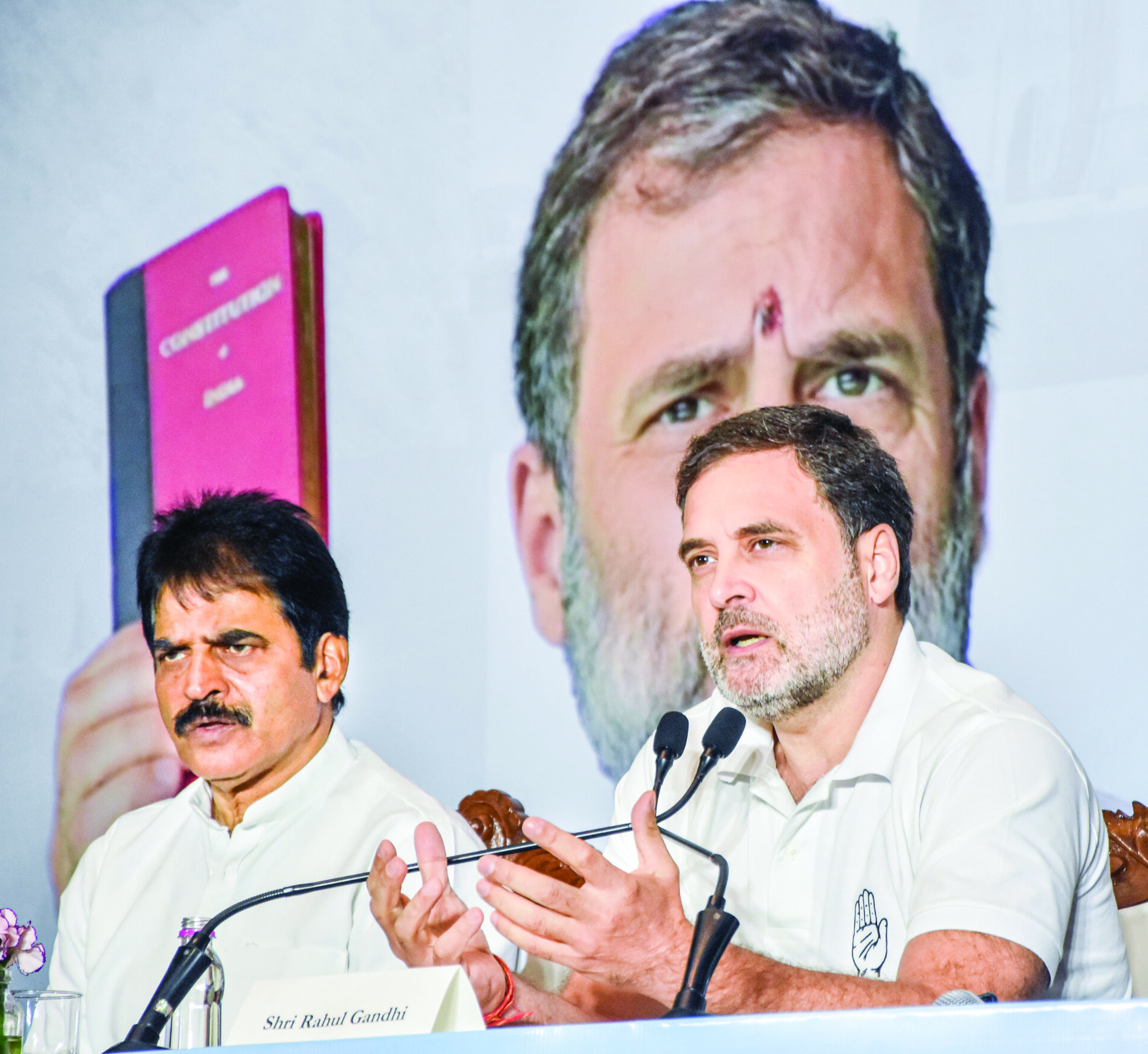Congress faces internal challenges, leadership gaps, and mounting pressure for revitalization to regain political ground.
New Delhi: The Congress party seems to be preparing for a major organisational reshuffle following setbacks in Maharashtra and Haryana. As the new year approaches, there is growing pressure on party leaders, including Leader of Opposition in the Lok Sabha, Rahul Gandhi, to implement changes aimed at revitalising the party. Congress President Mallikarjun Kharge acknowledged during a recent Working Committee meeting that weaknesses and shortcomings within the organisation need to be addressed. While it is Kharge’s responsibility to strengthen the party, critics believe that adequate steps have not yet been taken. The coming months could be crucial for the Congress as it works to recover lost ground and rebuild its political position.
Discarding the decisions made during the Udaipur Sankalp has significantly harmed the Congress party. If the measures to strengthen the organisation had been implemented two and a half years ago, a revitalised Congress could have emerged by now. One of the key decisions was to ensure that no official would hold a position for more than three years. Additionally, two new departments were planned to establish direct communication with the states, which would have bolstered the organisation. However, these decisions were ignored, and General Secretary of the organisation, K.C. Venugopal became the de facto authority in the party, with his decisions receiving the approval of Rahul Gandhi. This concentration of power has made Venugopal a target following the party’s repeated electoral defeats. Many within the party attribute the outcomes of key decisions and appointments in recent years to Venugopal’s influence.
The party’s continued losses in the Hindi-speaking belt have raised further concerns. Discussions within the Congress suggest that Venugopal could be sent back to Kerala and projected as the party’s chief ministerial candidate for the state’s 2026 elections. However, factionalism within the Kerala Congress, exacerbated by two consecutive defeats, presents significant challenges. This makes the path forward uncertain for Venugopal as well.
If Wayanad MP Priyanka Gandhi steps in, it is likely that the Congress workers in Kerala may not raise objections. However, if Rahul Gandhi fails to take action regarding the organisation, marginalised leaders within the party might voice their concerns. According to sources, one or two leaders raised questions about the organisation’s functioning during the recent Working Committee meeting.
It is widely acknowledged that most officials at the Congress headquarters are rarely present. There are even complaints
Rahul Gandhi himself is seen as responsible for the current state of the Congress party. He is often criticised for being inaccessible, as he neither meets nor listens to many party members. As a result, the realities within the organisation rarely reach him. During the Bharat Jodo Yatra, many of the people Rahul met were reportedly those who had managed to gain access through connections, which limited his understanding to what was selectively presented to him.
Rahul is also perceived as failing to recognise the critical importance of North India, particularly the Hindi belt, to the Congress’s revival. The party’s leadership, from the central organisation to its affiliated bodies, is dominated by figures from South India. Both Congress President Mallikarjun Kharge and General Secretary K.C . Venugopal hail from the South and lack a deep understanding of the Hindi belt’s political dynamics.
What Congress desperately needs is a leader like Ahmed Patel, who was known for his patience, accessibility, and problem-solving abilities. Patel would spend hours meeting leaders and workers from all states, listening to their concerns, and finding solutions. Whether the Congress was in power or in opposition, Patel played a pivotal role in bridging gaps and guiding the party. Since his passing, the party has lacked a leader of his calibre who can effectively understand national politics and provide the Gandhi family with accurate insights.
The grievances of dissatisfied leaders, temporarily subdued by the Udaipur Sankalp, resurfaced after repeated electoral defeats. The recent working committee meeting reflected the same unresolved issues that were discussed during the Udaipur Sankalp, highlighting the persistent challenges facing the party. This growing discontent led to the formation of Group 23 in 2021-22, a faction of leaders advocating for decision-making through consultation and greater organisational focus. Their concerns, however, were largely ignored.
Instead of addressing their internal weaknesses, Congress leaders attributed their electoral defeat to EVMs and spoke of launching nationwide protests. Over time, attention within the party shifted toward Priyanka Gandhi, a move that experts interpret in various ways.

